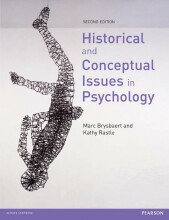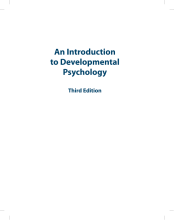Thinking computers
18 important questions on Thinking computers
How does functionalism follow logically from non-reductive materialism?
- Due to multiple realization of mental states it is not so useful to look at how mental states are realized.
- therefor it should be focused on what the functions of certain mental states are.
Describe the thought experiment of the silicone brain or fading qualia thought experiment
- One day you wake up and don't see very well anymore so you go to the doctor.
- doctor concludes it is something wrong in your brain which can be solved by a silicon chip that will fulfill the functions of the damaged neurons
- next thing you don't hear very well and the same thing occurs
- until your whole brain is made out of silicone, do you still have consciousness?
How did john searle wipe out the hype around a thinking computer?
- Proposes the thought experiment of the chinese room
- you are in a room where chinese notes are passed under the door.
- you have a book that tells you what to respond to which note
- you have a full conversation in chinese, the people outside the room think you speak chinese while you know you can't
- the analogy is that you are the turing machine, designed to know what to respond to what input without knowing what the responses mean.
- Higher grades + faster learning
- Never study anything twice
- 100% sure, 100% understanding
What is the reasoning behind searle's thought experiment
- The computer in the turing tests just gives responses to the input it gets
- but it doesn't attach meaning to these responses
- when we talk about concepts we attach concepts of the outside worlds to the words we use, a computer doesn't do this
- this is essential for consciousness and this is why a computer doesn't have consciousness
What were the responses to searle's chinese room, and how did he respond to that?
- Response was that one turing machine/chinese room might not be enough, what if we made a whole network where each unit would be like a neuron
- answer was A network of Chinese rooms/turing machines doesn't understand anything either it would just be a more complex input output mechanism
- Simulating is not the same as realizing, meaning is essential for consciousness.
What are two things that are hard to explain for materialism?
- Subjectiveness of experience; qualia
- free will
How is illustrated that a materialist explanation of experiences misses out on subjectiveness of experience?
- The thought experiment of mary the colourscientist illustrates a girl that grows up in a room that is black and white
- in this room she studies everything there is to know about colour
- what kind of wavelength, how to distinguish, etc. All in a materialistic way
- once she knows everything she goes outside and sees the colours for the first time, does she learn something new.
- materialistic descriptions of information miss out on what it's actually like to experience something
According to nagel what is consciousness?
What is the hard problem of consciousness?
- how is subjective experience possible at all?
- How and why do physical properties lead to subjective experiences?
What are the views of david chalmers on the hard problem of consciousness?
- He argues that standard research only deals with the "easy problem".
- One only investigates which brain processes are at the basis of which experiences
- But the real mystery, the problem of consciousness - why do we have qualia at all - is not addressed
- he states that we should maybe inflate physics to include the mind since we cannot explain it based on what physics already contains
What is the cognitive closure hypothesis
- That we are unable to ever understand the hard problem of consciousness due to physical limits
- A dog can't learn the Pythagorean theorem either
Describe psychology's view on free will
- Starting point: we see that organisms, such as humans, operate autonomously (according to individual laws)
- In other words, our behavior seems to come "from ourselves"
- We are used to holding people responsible for their behavior
- behavior comes from the person within
What are the criteria for free will?
- The intention of behavior precedes behavior
- The behavior wasn't necessary (you could have done something else)
- The intention of behavior was the cause of the behavior
How do we call the intuition that The physical state of the world at t fully determines the physical state at t+1?
What are the options to explain free will into determinism, since determinism leaves not so much room for free will?
- Refute determinism
- determinism is consistent with free will
How does refuting determinism give room for free will?
- By refuting determinism you assume probabilism
- this means that behavior is not completely determined by the behavior before but behavior has a certain probability to happen which can be increased or decreased.
- this actually doesn't give room for free will at all because in that case if you have the intention to produce behavior there's also a chance that it doesn't happen.
- this means that you are a slave to the probability
- you actually need a form of determinism; namely between the intention and the behavior; if the intention is there then it must be the case the behavior follows.
How did libet contribute to the problem of free will?
- He did a research where he put people in a situation where they saw a clock and a button
- there task was to press the button and remember the time they had the intention to press the button.
- he showed through eeg that the action potential to push the button was already there before people had the intention to push the button.
- the results are replicated in other studies
One way to save free will is to conceptualize it differently, how would we do that?
- Free will is often considered an explanatory entity (something that explains)
- But you can also see free will as a phenomenon to be explained;
- we clearly differ in autonomy from cars and stones, Call this phenomenon "free will"
- the question then would be how this difference arises.
The question on the page originate from the summary of the following study material:
- A unique study and practice tool
- Never study anything twice again
- Get the grades you hope for
- 100% sure, 100% understanding
































